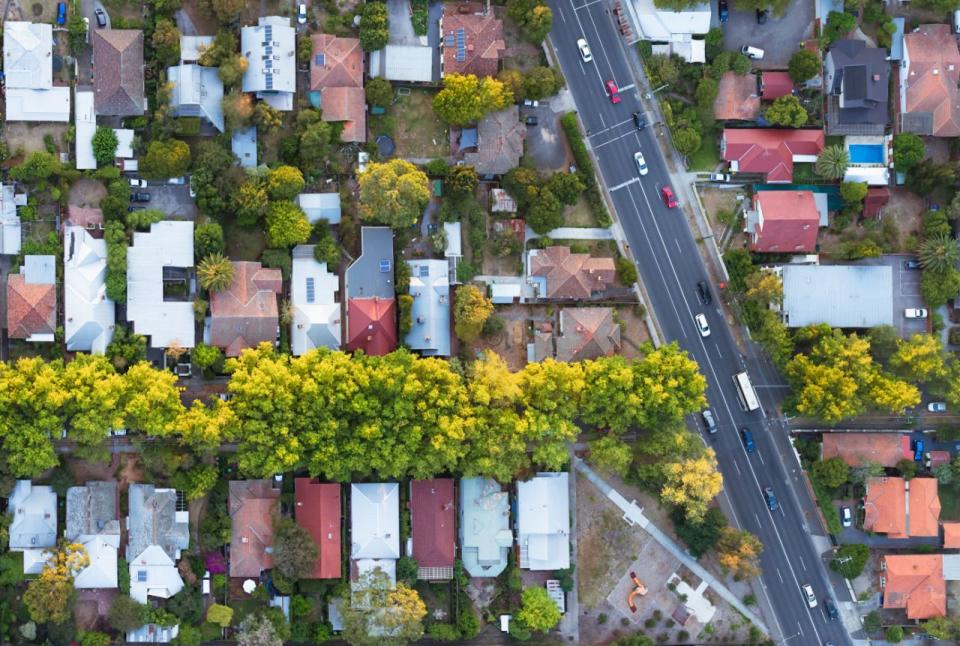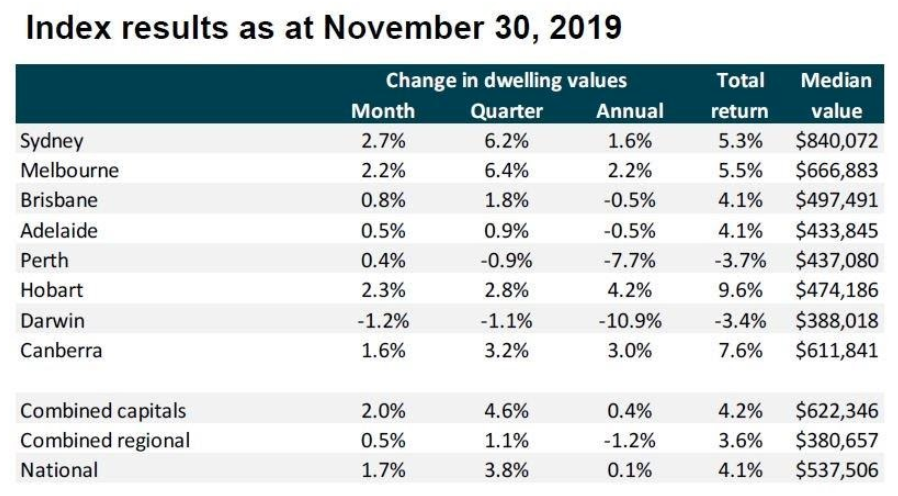Then, now and in the future: A glance at Australian property in 2019

It really seemed one of the most eventful years in property for a long, long time.
This time last year prospects looked bleak with property sales dropping sharply, price corrections worsening in Sydney and Melbourne and weakness starting to spill over to other markets.
Both home buyers and sellers went on strike, and the turnover of properties for sale finished 2018 at a 31 year low.
Related story: A look back at house prices over the decade
Related story: Here’s where Australian property prices are going in 2020
Related story: This map shows where house prices have risen the most in 3 years
The year started with much negative sentiment and the doomsayers were out in force predicting property Armageddon as the world economy and Australia's economy slowed down.
But in the second half of the year we’ve had three interest rate cuts, a tax rebate and the biggest property market rebound that Melbourne and Sydney have ever experienced.
Here are some of the highlights of 2019:
All those doomsayers and Negative Nellys who predicted the property market was going to crash were once again they were proved wrong.
Australia's economy has underperformed. The recent disappointing GDP numbers have led dooms day merchants to gloat that an approaching financial tsunami will drown all in its path.
Interest rate cuts haven’t worked. The RBA has cut rates three times since June, causing house prices to rise in Sydney and Melbourne at the fastest growth rate we’ve seen in 10 years.
The Reserve Bank keeps reminding us it wants the unemployment rate, which sits at 5.2 per cent, to drop to 4.5 per cent. This is the point where the RBA believes wage pressures should would get inflation moving again. But this seems an unrealistic target in the short term with more job losses likely in the construction and retail sector
The downside of these consecutive interest rate cuts is that Australian households and businesses are getting nervous. They’re becoming less confident about their job security, their household finances and the outlook for the economy, which is offsetting some of the stimulatory benefits of historically low interest rates.
At the same time many Australians are stashing their cash and paying down debt rather than spending while businesses seem hesitant to invest due to the uncertain global economic outlook.
Here’s what’s been happening in our property markets…
As always, our property markets are fragmented and conditions continue to vary markedly by state:

Sydney property is showing a strong, broad based price rebound that is already starting to hint at renewed affordability issues.
Melbourne's property recovery has good momentum but is more uneven across segments.
Brisbane missed out missed out on most of the recent price cycle – it didn't have the dramatic price falls and therefore has missed out on a significant upturn.
Adelaide is seeing a gentle firming, but Perth is still struggling to pull out of its multi-year price correction.
Auction clearance rates
At the beginning of the year auction clearance rates were in the 40 to 50 per cent range but now, particularly in Melbourne and Sydney, auction clearance rates remain very strong despite more properties coming onto the market for sale continuing the post-election bounce in confidence in our property markets.
The prospect of easier access to finance, falling interest rates and a tax cut has boosted confidence, driving strong auction results across Australia.
The Melbourne auction market has also performed very strongly, particularly in the inner eastern and south eastern suburbs.
What’s ahead for property prices?
Sydney’s housing market is on track to recoup the 15 per cent loss in prices suffered during the 18-month downturn early next year and reach a new record high by mid year.
Melbourne is on track to hit a new record high of prices in in the first half of next, with property values just 3.7 per cent below their peak reached in October 2017.
Property price growth is likely to slow down once our two big capital cities reach new peaks with property values likely to rise more modestly to the end of 2020 growing about 10 per cent over the year.
Make your money work with Yahoo Finance’s daily newsletter. Sign up here and stay on top of the latest money, property and tech news.

 Yahoo Finance
Yahoo Finance 
